Electra complex psychology
Definition, Freud, Examples, Symptoms, and More
The Electra complex is a term used to describe the female version of the Oedipus complex.
It involves a girl, aged between 3 and 6, becoming subconsciously sexually attached to her father and increasingly hostile toward her mother. Carl Jung developed the theory in 1913.
Sigmund Freud, who developed the Oedipus complex theory, first developed the idea that a young girl child competes with her mother for the sexual attention of her father.
However, it was Carl Jung — Freud’s contemporary — who first called this situation the “Electra complex” in 1913.
Just as the Oedipus complex was named after a Greek myth, so is the Electra complex.
According to Greek mythology, Electra was the daughter of Agamemnon and Clytemnestra. When Clytemnestra and her lover, Aegisthus, killed Agamemnon, Electra persuaded her brother Orestes to help her kill both her mother and her mother’s lover.
According to Freud, all people go through numerous stages of psychosexual development as children. The most important stage is the “phallic stage” between the ages of 3 and 6.
According to Freud, this is when both boys and girls become fixated on the penis. Freud argued that girls fixate on their lack of a penis and, in its absence, their clitoris.
In a girl’s psychosexual development, Freud proposed, she’s first attached to her mother until she realizes she doesn’t have a penis. This causes her to resent her mother for “castrating” her — a situation Freud referred to as “penis envy.” Because of this, she develops an attachment to her father.
Later, the girl identifies more strongly with her mother and emulates her behavior out of fear of losing her mother’s love. Freud called this a “feminine Oedipus attitude.”
Freud believed this was a crucial stage in a young girl’s development, as it leads her to accept gender roles and understand her own sexuality.
Freud proposed that the feminine Oedipus attitude was more emotionally intense than the Oedipus complex, so it was repressed more harshly by the young girl. This, he believed, led to women being less self-confident and more subservient.
This, he believed, led to women being less self-confident and more subservient.
Carl Jung expanded on this theory by labeling it the “Electra complex.” However, this label was rejected by Freud, who said it was an attempt to analogize the Oedipus complex between the sexes.
Since Freud believed there were crucial differences between the Oedipus complex and the feminine Oedipus attitude, he didn’t believe they should be conflated.
Initially, the girl is attached to her mother.
Then, she realizes she doesn’t have a penis. She experiences “penis envy” and blames her mother for her “castration.”
Because she wants to sexually possess a parent and she can’t possess her mother without a penis, she tries to possess her father instead. At this stage, she develops subconscious sexual feelings toward her father.
She becomes hostile toward her mother and fixated on her father. She might push her mother away or focus all her attention on her father.
Eventually, she realizes she doesn’t want to lose her mother’s love, so she becomes attached to her mother again, emulating her mother’s actions. By emulating her mother, she learns to follow traditional gender roles.
By emulating her mother, she learns to follow traditional gender roles.
In puberty, she’ll then start becoming attracted to men who aren’t related to her, according to Freud.
Some adults, Jung noted, could regress to the phallic stage or never grow out of the phallic stage, leaving them sexually attached to their parent.
The Electra complex isn’t widely accepted in psychology nowadays. As with many of Freud’s theories, the feminine Oedipus attitude complex and the notion of “penis envy” is also widely criticized.
Very little data actually supports the idea that the Electra complex is real. It’s not an official diagnosis in the the new edition of the Diagnostic and Statistical Manual of Mental Disorders (DSM-5).
As a 2015 paper points out, Freud’s ideas about psychosexual development have been criticized as outdated because they rely on century-old gender roles.
The concept of “penis envy” has, in particular, been criticized as sexist. The Oedipus and Electra complexes also imply that a child needs two parents — a mother and a father — to develop properly, which has been criticized as heteronormative.
That said, it’s possible for young girls to experience sexual attraction toward their fathers. It’s just not as universal as Freud and Jung believed it to be, according to many in the field.
The Electra complex is no longer a widely accepted theory. Most psychologists don’t believe it’s real. It’s more a theory that’s become the subject of jokes.
If you’re concerned about your child’s mental or sexual development, reach out to a healthcare professional, such as a doctor or child psychologist. They can help guide you in a way that may settle your concerns.
What Is the Electra Complex?
This debunked theory aimed to explain a possessive form of attachment between a female child and her opposite-sex parent.
Love and affection between children and parents is natural. How you’re raised — and in particular, the amount of love and support you’re given — can impact how you develop into an adult.
But when a child’s feelings of love and attachment shift into a form of desire, it may signal a deeper mental health complex.
One unproven theory of psychosexual development created by Sigmund Freud describes this experience as becoming stuck in “phallic phase” of development, triggering an Oedipus complex.
The Electra complex is a complementary — though similarly unproven — theory developed by Carl Jung, a student of Freud, and centers on similar feelings female children might experience.
The Electra complex is a largely debunked theory that describes a female child experiencing specific feelings toward the parent of the opposite sex — her father — including:
- desire
- possessiveness
- fixation
According to its creator Carl Jung, a child experiencing the Electra complex may also have a competitive drive against the parent of the same sex.
The Electra complex theory is sometimes considered the female counterpart to the Oedipus complex theory, a component of Sigmund Freud’s psychosexual theory of development.
Electra complex isn’t a Freudian term, however. It’s an expansion of his theory created by Carl Jung, specifically used to define feelings in female children who are fixated on their fathers.
It’s an expansion of his theory created by Carl Jung, specifically used to define feelings in female children who are fixated on their fathers.
Though many children experience feelings that may match the Electra complex theory description, it’s not an accepted theory or condition in modern psychotherapy.
Who was Electra?
A legendary character of ancient Greek tragedy, Electra was the daughter of King Agamemnon and Clytemnestra.
When King Agamemnon was murdered, she helped save her younger brother Orestes by sending him away into hiding.
When he returned from exile, Electra persuaded her brother to help her murder their mother Clytemnestra and her new lover, who were responsible for the death of their father, King Agamemnon.
Unlike Oedipus, Electra didn’t marry her opposite-sex parent. Instead, she married Pylades, one of her brother’s friends.
When does Electra complex occur?
Freud’s original theory of psychosexual development consists of 6 phases. Each phase involves aspects of maturing pleasure sensations and a growing sense of self-identity.
Each phase involves aspects of maturing pleasure sensations and a growing sense of self-identity.
These phases include:
- oral: infancy to 18 months
- anal: 18 months to 3 years
- phallic: 3 years to 5 years
- latency: 5 years to 12 years
- genital: 12 years, or the onset of puberty, to adulthood
Though empirically unproven, Freud believed that children experienced the majority of their development in sexual identity between ages 3 and 5 years old, or the phallic phase.
His theory suggests that this is also the phase where children may experience the Oedipus — or Electra — complex, which he saw as a natural part of development.
The Electra and Oedipus complexes are no longer widely accepted among modern psychotherapists and analysts.
Both of these early theories remain a fascinating perspective on childhood development and the history of psychoanalysis.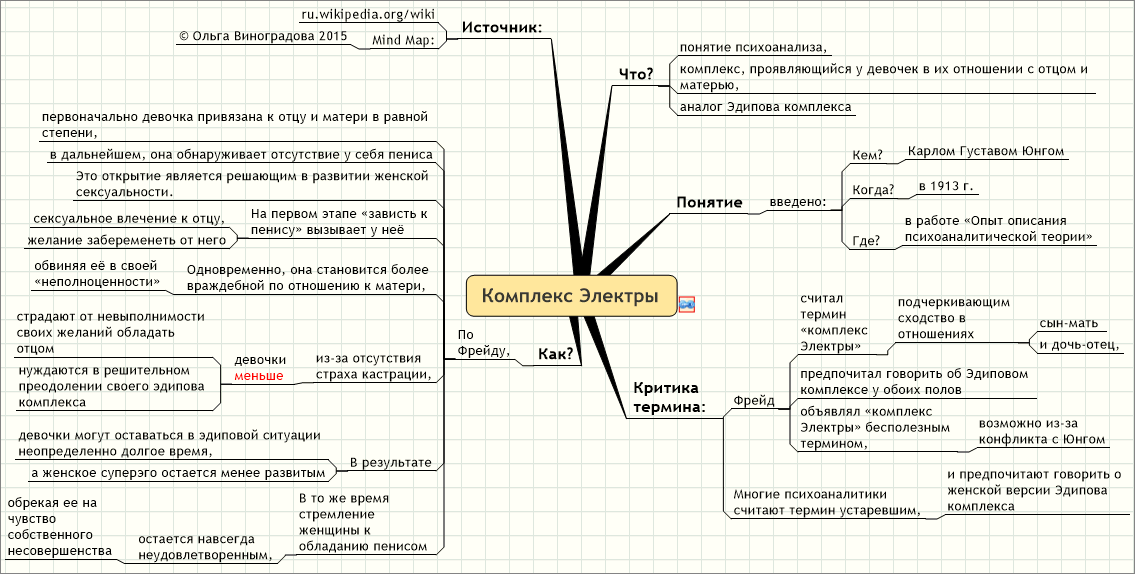
However, newer theories have emerged to explain attachment between children and parents without components of sexuality or an overbearing focus on gender.
Heteronormative gender roles
Additionally, the Electra and Oedipus complexes have been heavily criticized for their reliance on heteronormative gender roles.
Having one female and one male parent doesn’t necessarily equal better childhood development. Current research suggests children raised in LGBTQ families may experience primarily positive outcomes. They may also face similar family challenges as those of families with heterosexual parents.
In Freud’s original Oedipus complex theory, both male and female children with a parental fixation fell under the same classification.
Freud fundamentally believed that both girls and boys experienced psychosexual development in the same phases. Therefore, he felt the Oedipus complex aptly described this type of experience in both sexes.
Carl Jung is credited with expanding the Oedipus complex theory in 1913, splitting the complex between boys and girls. Jung suggested that his Electra complex was a way to clearly define a female child’s feelings of desire toward her father.
Jung suggested that his Electra complex was a way to clearly define a female child’s feelings of desire toward her father.
Originally, Jung intended for the Electra complex to be the female counterpart to the Oedipus complex. However, Freud never supported this additional classification.
Likewise, it may be an oversimplification to call the Electra complex a female version on Freud’s original Oedipus complex.
Freud’s theory of psychosexual development
Freud felt Jung’s Electra complex theory created an unnecessary separation. According to his original theory, the Oedipus complex wasn’t about the adult definition of sexual desire toward a parent.
In Freud’s Oedipal theory, children may develop a desire to possess a parent because that parent might represent a need gratification.
As the child develops sexually, that need gratification can involve into sexual stimuli. However, the concept of sex and sexuality isn’t something a child commonly understands at that age.
Freud believed both male and female children first fixated on their mother — the primary need-fulfiller — during their psychosexual development.
Around age 3 to 5 years old, children go through the phallic development phase, where both girls and boys might be fixated on the penis. However, Freud suggested a differentiation between boys and girls during this phase.
Girls and ‘penis envy’
During the phallic phase, Freud theorized that girls might realize they’re physically different than boys, understanding that they lack a penis. Freud referred to this as “penis envy.”
Again, penis envy is purely theoretical and has little to no empirical support by the wider scientific community. The theory isn’t used or accepted in modern psychology.
Girls might also learn that their mother doesn’t have a penis during this phase. Freud’s theory suggests this may cause girls to subconsciously blame their mother for somehow “castrating” them.
During this time of resentment, Freud hypothesized that girls may turn more towards their fathers and away from their mothers, until they entered the next phase of psychosexual development.
Jung’s reasoning
While Freud did address the female experience in his Oedipus complex theory, Jung felt Freud’s original theory was too heavily oriented towards explaining behavior in males.
So, Jung separated the female theory under its own label — the Electra complex. This was his attempt to fill in Freud’s knowledge gaps related to the psychosexual development of girls.
The Electra complex is considered a typical part of the phallic stage of psychosexual development, according to Jung’s theory.
However, this theory also states that it is possible to become “stuck” in this phase.
A typical part of development
Characteristics of the Electra complex are commonly seen as a transient phase of development for girls.
This is when a female child’s primal id — the subconscious part of the self present from birth — may cause her to move away from her mother due to Freud’s concept of penis envy.
During this time, girls may become possessive of their fathers and hateful toward their mothers.
The ego and superego
As psychosexual development progresses, female children may soon start to develop their ego and then superego. These are the components of personality that eventually drive conscious decisions and morality.
As the ego develops, Electra complex behaviors typically fade and girls begin to identify with their mothers again.
Unresolved phallic phase conflicts
But sometimes, those feelings of possession and desire toward the father figure don’t fade with development. Freud believed this was due to unresolved internal conflict during the phallic phase.
Because the Electra complex remains an unproven theory, the possible causes of unresolved internal conflict during the phallic phase remain scientifically unsettled.
Adverse childhood experiences (ACEs)
It’s possible that adverse childhood experiences (ACEs), like trauma, could be a contributing factor to developing an Electra complex.
ACEs have been linked to many other conditions, including:
- chronic health problems
- mental health disorders
- substance use disorders
According to Jung’s theory, an Electra complex left unresolved in childhood may persist into adulthood.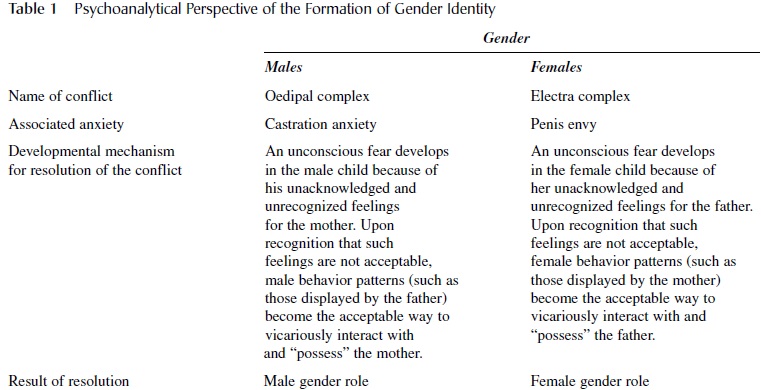
Since Electra complex isn’t a formal mental health diagnosis, it may be difficult to tell if you’re experiencing symptoms.
Potential signs of Electra complex for women and women-identifying people could include:
- avoiding or being hostile toward your mother
- disliking your mother for no obvious reason
- fixating on only what your father does
- seeking out romantic partners that resemble or have characteristics of your father
- wanting to be overly involved in everything your father is doing
Just because you prefer your father over your mother doesn’t necessarily mean you’re experiencing Electra complex.
There are many reasons why children might form strong attachments to one parent over the other, such as emotional unavailability or parental absence.
Since the Electra complex remains an unproven and often controversial theory, it can’t be diagnosed. Therefore, there are currently no formal treatments for Electra complex.
However, if you’re concerned about the level of attachment you or your child might feel toward a parent, talking with a therapist can help. A therapist trained in child development can help you or your child work through the root of these complex emotions.
While Jung’s Electra complex intended to fill gaps in Freud’s Oedipus complex and build upon his overall theories of psychosexual development, it remains unproven and controversial.
As a result, the Electra complex is not a condition that can be diagnosed or formally treated.
Feeling strong emotions for one parent over another isn’t necessarily an indication that something is wrong with you, or that you didn’t develop correctly as a child.
Other aspects of childhood experience can sometimes impact your parental relationships and interactions, such as:
- trauma
- culture
- home environment
- spiritual beliefs
Sometimes, a parent may have their own challenges that prevent a strong bond with children, such as emotional unavailability or absence.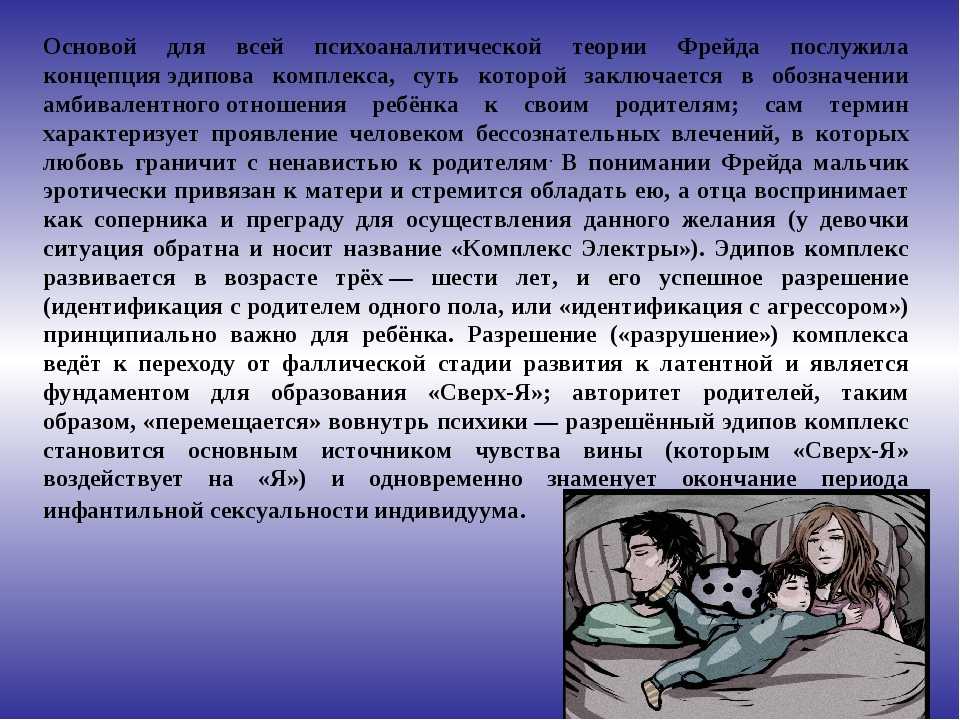
However, if you suspect that you or your child might be feeling emotions that creep into the realm of desire or possessiveness for a parent, talking to a therapist may be a good idea.
If you’re ready to seek help, visit Psych Central’s guide to mental health support.
What is the complex of Electra, Napoleon, Cinderella, Sisters, etc.
Complexes are formed in childhood and pull imprints into adulthood in the form of difficulties in building relationships, worries about one's short stature, too much guardianship over people who do not need it . Even so, you can improve your quality of life by approaching a particular problem, as described below.
Elektra complex.
The Electra complex is the daughter's sexual attraction to her father and the desire to take the mother's place. It enters the stage of normal development of the child, from the age of 3, when the personality begins to actively manifest itself and the children want to show themselves independent.
In most cases, all signs disappear until 6-7 years old , when the girl switches her attention to male peers. If this did not happen, parents should actively engage in raising a child and direct her on the right path.
Sigmund Freud, the founder of this theory, made observations of children. He explained this complex as follows: the girl wants to replace her father's wife. Therefore, she tries to do everything like mom and also look like. The behavior model teaches the female role for adulthood.
Main features.
Depending on the type of upbringing in the family and traditions, the Electra complex will manifest itself in different ways. The main features include:
- Demonstrative behavior . The daughter is trying to attract the attention of her father, which is not always possible with the help of obedience, so obvious whims are used.
- Boredom . When the father leaves the apartment on business, the child becomes very bored and does not find a place for himself.
 These are a sign of strong attachment to a parent of the opposite sex.
These are a sign of strong attachment to a parent of the opposite sex. - Jealousy. Manifested by aggression towards mother, pushing her away from her husband, getting between them. He can lock the doors to the room and not let him in, say: “Go away!”.
- Feeling of tension . The girl does not understand what is happening around. The difficult situation does not give rest. It can manifest itself in irritability for any reason.
- Dreams. If you ask your daughter about what she dreamed about, you can hear a symbolic picture of sexual attraction to dad and anger at mom.
How to get rid of?
If after 7 years the Electra complex has not passed, then parents should pay attention to this. You need to explain that dad loves mom like his wife. A daughter is like a child. These are different kinds of feelings, although equally warm and strong. And that the girl will also once have a boyfriend.
Not allowed to sleep in your own bed and when taking a bath. It is necessary to protect the child from his personal intimate space. If he wants to kiss on the lips, then gently stop and explain that this cannot be done. Do not shout or punish for it.
A daughter should communicate not only with family members, but also have the opportunity to talk, build friendly relations with her peers. To do this, you can enroll in a circle in which you can interact with others: dancing, theater, fencing.
Freud test
Napoleon complex.
The Napoleon complex is also called the “little man complex”. Characteristic for people with short stature, who are very ashamed of this and consider it a defect in appearance. One would think that this would make one be secretive and shy, but it works quite the opposite.
Named in honor of Emperor Napoleon Bonaparte, who is famous for his purposefulness, great ambitions, constant self-confidence and energy. And at the same time, he was only 1. 51 m tall.
51 m tall.
Psychologist Alfred Adler was the first to describe when short men came to see him and showed a desire to “take over the world”. They didn’t say so directly, but their actions and words clearly fought off large-scale goals of enslavement.
Main features.
There are differences between the manifestations in women and men, but the main characteristics include:
- strive to prove their importance to everyone around;
- do not like being criticized;
- proud;
- do not tolerate help;
- suspicious;
- are successful in their careers and achieving their goals;
- choose tall sexual partners;
- constantly it seems that everyone around is looking only at them and condemning;
- is easy to offend;
- inherent perfectionism;
- aggressive and violent;
- are trying to take a leadership and leadership position.
How to get rid of?
It must be remembered that a person is not only his height, but the totality of all personality traits and appearance. Therefore, if you develop yourself intellectually and spiritually, you can build strong and reliable relationships. And also, to take the workplace, which will really bring pleasure, and not just satisfy the desire to dominate.
Therefore, if you develop yourself intellectually and spiritually, you can build strong and reliable relationships. And also, to take the workplace, which will really bring pleasure, and not just satisfy the desire to dominate.
It's worth noting that with short stature, extra pounds are immediately noticeable. Therefore, you need to watch your diet and do physical activity. Also, get your hair done right. Long hair in men visually takes a few centimeters of height, so you should choose a short haircut. And for girls - lift at the roots with the help of styling.
Posture is another element to watch out for. Because, if you stoop a little, it can “reduce” growth by a few centimeters. It is necessary, as always, to remember this and straighten up while walking or sitting at the table. Also, do exercises. For example, wearing a book on your head.
Properly chosen things are another way to success. For example, do not use a wide belt and horizontal stripes. And vertical lines in clothes are very necessary. Men should give up massive accessories. Women wear long pendants or beads. Also, do not forget about heels and platform.
Men should give up massive accessories. Women wear long pendants or beads. Also, do not forget about heels and platform.
Guilt complex.
The guilt complex is a pathological emotional reaction to insult, criticism, reproaches in one's direction. Such a feeling is formed at an early age in the family circle, or at an older age in a team. In this microsociety, they are prone to humiliation and suppression of the individual.
Such a model of behavior is instilled when, after violence (moral or physical), they say that a person is bad and miserable. This pressure stops after the dominant gets the desired response: a lengthy apology, tears, gifts.
After such an act, a feeling is instilled that one should be punished. Even if a person believes that he is not guilty in this case. An installation appears in my head: “If they shout at him and get angry, then there is something for it.”
It is also possible that in a couple someone cannot reciprocate and the same power of love. The absence of such feelings makes one feel guilty towards a partner, which they can try to cover with gifts, money. Or they will attach insufficient attention to their parents. This cannot be changed through employment.
The absence of such feelings makes one feel guilty towards a partner, which they can try to cover with gifts, money. Or they will attach insufficient attention to their parents. This cannot be changed through employment.
Pass a personality test
Key features.
There are many reasons why a guilt complex develops. Depending on the factor, the manifestations will also differ. In common features can be identified:
- Strong impressionability and sensitivity, tears due to the most insignificant situations. Other people's words can lead to the emergence of new complexes about personal qualities or appearance.
- Very critical of themselves.
- Indecisive and withdrawn, timid, modest.
- They show excessive concern - this is how they try to atone for their guilt for any reason that gnaws from the inside. Help with things that are easier to do yourself. They are overprotective of their children. If it was not possible to pay enough attention when meeting with a friend, then next time it will be over the edge.

- Violence by others is interpreted as "I myself am to blame."
- There is a subconscious desire to receive punishment. Therefore, from the outside it seems that very often they fall into various casus situations that could have been avoided.
How to get rid of?
It is worth determining, or what is being accused of is really expedient. To disassemble the causal relationship, and not immediately lower your head and accept punishment. If the fault really lies, then apologize and immediately resolve the conflict on the spot so that it does not burden the house later.
It is worth sharing your experiences with others. Since negative emotions accumulate throughout the day, week, it is worth telling them - letting off steam, and not saving up in yourself so that it does not turn into resentment, a feeling of inferiority, etc. At the same time, they can give advice on how to improve the situation; or a look to the side, is there any fault for the interlocutor.
Constant negativism supports the guilt complex. Therefore, it is worth changing your worldview. Try to see the world in brighter colors. Perhaps it is worth changing the people around you, who cause this feeling inside.
Cinderella complex.
The Cinderella Complex is such a lifestyle when a person only dreams and does nothing to realize his desires and plans. You might think that this is typical of adolescents and women. But among such people there are quite a lot of adult men.
Girls at the age of 13 begin to dream of a prince on a white horse who will ride and everything will be fine. He will take care of her life, provide a home and money. Will love until the end of days, and no quarrels. So 20 years, 30 and 40 pass, and the worldview does not change. Woman waiting for a miracle.
Men go to work that they don't like and really want to do a job that will bring pleasure. About 30% of the population complain that they cannot realize themselves in their native country.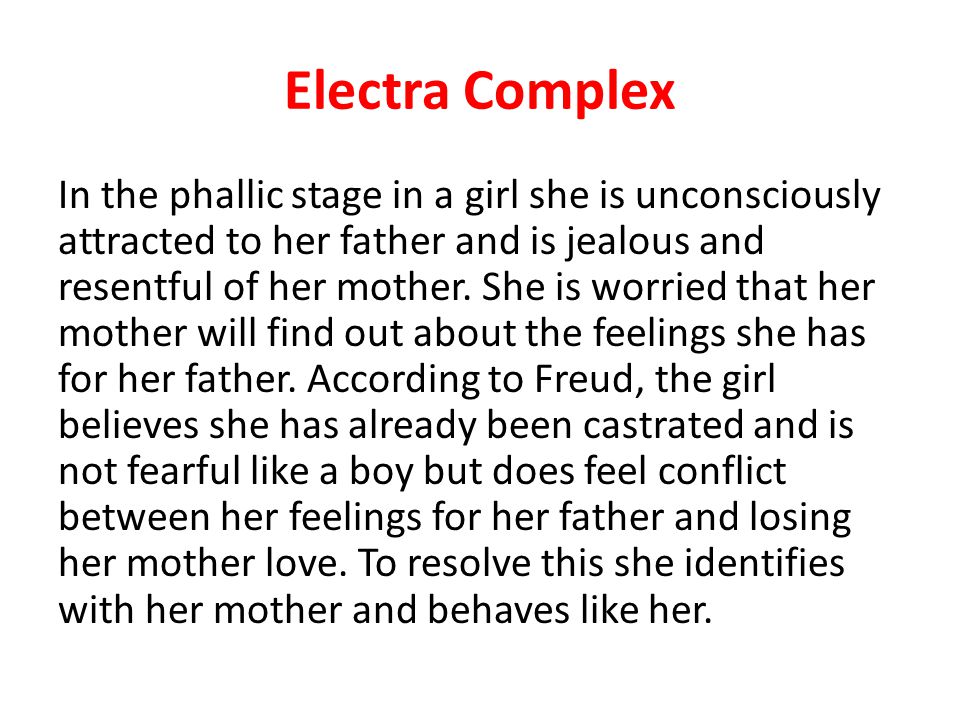 But at the same time they do not try to go abroad to work.
But at the same time they do not try to go abroad to work.
Main features.
Personality differences may be due to age and gender. The main features of the Cinderella complex:
- life passes in dreams, not in the present moment;
- attempts to please everyone and earn love;
- obedience in everything;
- altruism;
- often has additional complexes: excellent students, victims;
- endless hope for a miracle;
- low self-esteem - lack of confidence that you can change your life yourself;
- strong attachment to loved ones;
- excessive romanticism;
- passive spending of free time;
- constant feeling of guilt;
- constant sense of duty.
How to get rid of?
Self-esteem training and methods would be helpful. After all, it is her low level that often makes it impossible to start doing something herself, to move somewhere. Self-confidence will appear - forces will act and change something.
It is also worth introducing to women, what if the prince on a white horse never appears and does not save from this routine? You need to build a life in order to be responsible for it yourself. And someone will always see and notice a purposeful and interesting lady, she wants to bestow attention. Since such girls are often attracted to men.
If the Cinderella complex is built on the dream of wealth, then it is worth realizing that people in abundance did not just fall down like that. They need to be earned. Sometimes, it's quite hard work. And it’s better to look for a place that will bring pleasure, so that later the Cinderella complex is not replaced by a desire to make money on your favorite business.
Take a self-doubt test
Big sister (brother) complex.
The birth order of children affects their upbringing. As a result, the formation of personality. The first child grew up on his own, he got everything: a separate room, new things, a lot of toys, all the attention, the care of his parents.
When the second child arrives, all these things and aspects are divided in half, unless an even larger share is given to the baby. And as a rule, it happens, because they require more guardianship. Therefore, the elder is deprived.
This situation creates a sense of deprivation, anger. And also, a high responsibility over the younger child, a lot of work is added. Such conditions of upbringing, life in the family form certain personality traits with which a person enters adulthood.
Main features.
Young men, mature people often show character traits behind which one can easily see a sister (brother) complex:
- suffer from perfectionism;
- authoritative;
- according to statistics, have a high level of intelligence;
- responsible;
- strive for excellence, which can result in both success and an inferiority complex;
- overprotective;
- tendency to punish, reprimand for infantile behavior;
- heightened sense of injustice;
- seriousness, severity;
- going headlong into work;
- educating people around as if they do not understand anything;
- are trying to find a partner who will need control, care, like a younger brother or sister.

Take a mental test
How to get rid of it?
To get rid of the sister (brother) complex, you need to realize that adulthood has begun. There is no need to educate anyone. Around the same independent people with their point of view. If they need help, I can ask for it myself. Excessive care can only worsen the relationship between each other.
You no longer need to constantly work, be busy. That is, you need to learn to relax, relax. After all, if you constantly take on the burden of responsibility, dump many tasks, chronic fatigue develops. Because of which people become irritated, cognitive functions suffer.
Seriousness, strictness are good qualities for doing the same work. But you should not transfer these character traits into everyday life. After all, they create an atmosphere of tension. You can always laugh at something, sometimes look ridiculous or even infantile - let out a child who did not have time to play enough in childhood.
Younger sister (brother) complex.
The youngest child gets more attention because he is not taken by the next child (if he is the last one). Therefore, all love, affection, care in full belongs to him. Toys of an older sister or brother are also given; half or even the whole room.
The oldest child is always brought up more strictly, since this is the first child. On it, parents "learn" to educate. As a rule, they are very worried about doing something wrong. Therefore, they believe that it is better to set limits more strongly than something will happen due to free swimming.
The younger child is brought up more gently, because they take into account all the minuses of the past. They realize that it is not necessary to limit the child so much. Therefore, the discipline is more gentle, more allowed. Which also affects personality traits.
Main features.
Infantilism is a quality that is characteristic of people for various reasons. The complex of the younger sister (brother) is no exception:
- lack of independence in making a decision - often asks for the opinion of others, follows only them;
- lack of self-discipline - unable to control his regime, control himself, adhere to social norms, rules;
- irresponsibility - is not responsible for his actions, does not do work on time, does not keep his word;
- egocentrism - believes that the world revolves only around him, everyone owes him;
- manipulator - from childhood he knows how to correctly, easily manage the feelings, actions of others in order to achieve something;
- aggressiveness - often gets into quarrels, fights, emotionally, expressively shows his displeasure.

How to avoid?
It is worth developing self-discipline. Set a daily routine and follow it. Work where the rules are drawn in strict mode will help. There will be an additional leader who will make you arrive on time and do the entire amount of tasks. After that, it’s worth setting goals yourself and sticking to them.
Around people with their position, desires, personal space. Therefore, do not think that they have to follow whims. To get something, you can first ask for it, and not use manipulation. Before that, you need to build a trusting relationship.
You should make your own decisions. Since others will prompt, based on their tastes, which do not always coincide with personal ones. In addition, they often will not be at hand. Therefore, it is necessary to develop firmness in character, to take responsibility.
The Electra or Cinderella complex is not uncommon. It often happens due to improper upbringing or certain conditions in life.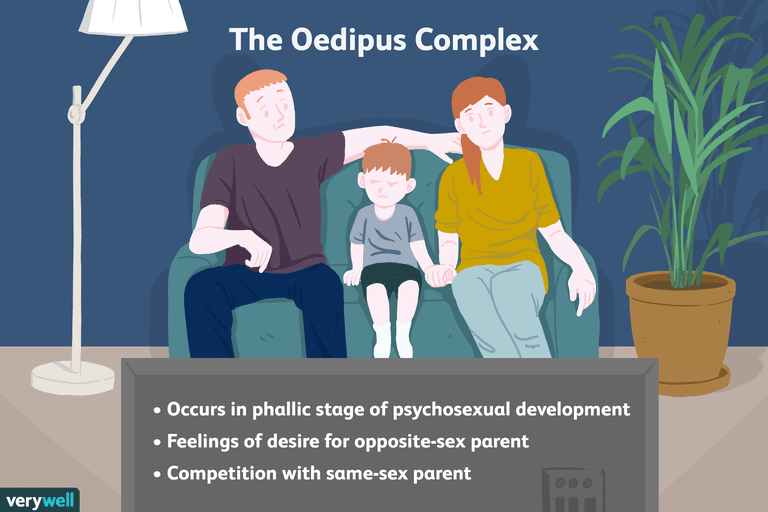 You always need to improve yourself, and take on a whole set of qualities that do not allow you to comfortably move on. After all, there are many tools to fix them.
You always need to improve yourself, and take on a whole set of qualities that do not allow you to comfortably move on. After all, there are many tools to fix them.
Take a psychological age test
What is the Electra complex in psychology
A daughter's relationship with her father is always a special relationship. But sometimes it happens that it develops into something overly strong. Often this accompanies hostile or extremely difficult contact with the mother. At the same time, “hostility” is not always manifested aggressively. These can be small actions (for example, nicknames or jokes) that show the mother that she is superfluous here, and the father, on the contrary, is on the pedestal.
Even people who are far from psychology at such moments remember what they heard about the Electra complex. But where is the line between love and respect for dad and psychological deviation?
In this article:
How the theory came about Why the Elektra complex develops Why the Young theory is needed Features of the Elektra complex
How the theory came about
Photo by Zack Jarosz: Pexels
This feature of intra-family relations was noted by Carl Gustav Jung, who created and presented to the public one of the world's most popular theories of the psychological development of girls: the Electra complex.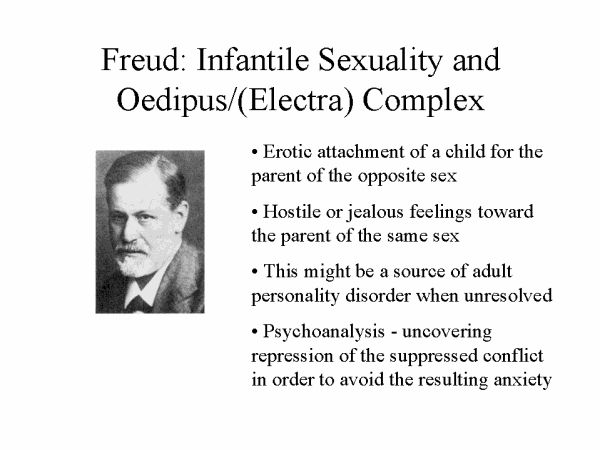 A psychologist from Switzerland was impressed by the story of a heroine from Greek mythology.
A psychologist from Switzerland was impressed by the story of a heroine from Greek mythology.
According to legend, Elektra was the daughter of a Mycenaean king. She and her brother Orestes devised an elaborate scheme to avenge their father's death. This meant the killing of the treacherous mother and her lover. The image of the princess inspired many famous writers.
Jung took this mythological image with him into psychology. Starting in 1912, he used his concept to refer to the primary attachment of little girls to their own parents, in particular to their fathers.
Media news2
The Electra complex is also the female version of the Oedipus complex, which was identified by Sigmund Freud and named after the hero of the classical tragedy Sophocles, who told the story of Prince Oedipus, who mistakenly killed his own father and married his own mother.
In this theory, the legendary "father of psychoanalysis" suggested that every growing boy goes through a phase when he feels attracted to his mother and sees his father as a rival. This happens on an unconscious level.
This happens on an unconscious level.
What is the Elektra complex?
Psychologists consider this moment, which may seem unusual to the layman, a normal stage in the mental development of all children in the interval of approximately three to six years. Then this attachment or preference naturally disappears on its own. But there are exceptions. For example, when there is discord in the family and one parent manipulates the other, using common children, a variant of the Electra complex may arise, which will not go away in the process of growing up.
Why the Electra complex develops
To understand this theory and how it came about, one must put oneself in the right context and approach the study from a psychoanalytic position. An important area to which Freud devoted a significant portion of his research was psychological and sexual development and how sexuality arises in the initial stages - as early as childhood. This became one of Freud's greatest revolutionary thoughts. Previously, psychologists did not believe that children had manifestations of sexuality at all.
Previously, psychologists did not believe that children had manifestations of sexuality at all.
How people respond to such impulses in their childhood determines the degree to which they mature and how balanced and natural their psychological development is. However, following specific negative beliefs (usually from parents and environment) can lead to mental disorders. Freud himself called such problems and neuroses "absurd."
Why Jung's theory is needed
But Jung had other views on these issues. The Swiss psychologist felt that there was a serious theoretical gap in Freud's idea. The Oedipus complex dealt exclusively with boys and only with a strong physical and emotional bond between sons and female parents during the first six years after birth. So he developed his ideas and assumptions to make up for this deficiency. His theory was to apply a now familiar perspective to the development of women.
Features of the Elektra complex
In its normal course, it consists of several phases. Each of them is expressed differently.
Each of them is expressed differently.
- First phase: a girl's feeling of attraction to her mother
Jung was convinced that the psycho-emotional contact between a girl and her mother in the first three years of life is much stronger than between a son and his mother. This first close connection will be marked by the psyche in time as a kind of return. She signals the girl's need to identify herself with a woman in order to include some of the mother's characteristics in her picture of the world and even integrate her morality into the subconscious.
- Second phase: feelings of attraction to the father
At three or four years the situation changes. The girl ceases to be attracted to her mother and begins to show great interest in her father.
The Electra complex is supposed to be formed when little girls first discover they are different from men. Therefore, now they are tempted to have something that symbolizes precisely masculine qualities.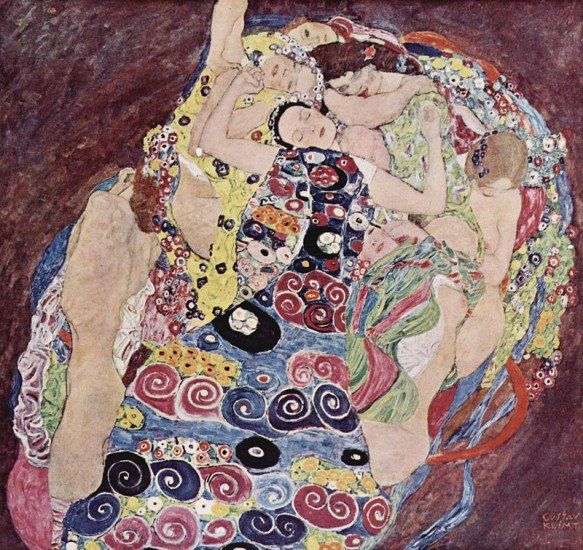
In addition, psychoanalytic theorists argue that such worship of the father figure creates a certain rivalry and increases the emotional distance towards the mother. Girls begin to envy parental relationships and show possessive feelings for their father. Or they may show hostility if they don't get what they want from him.
Natural disappearance of the Electra complex
At the age of six or seven, the girl again feels the need for intimacy and identification with the mother figure. Therefore, behaviors such as imitating and pursuing a woman's world begin when she finds her way to her gender role.
Jung emphasized in his theory that these phases are part of the absolutely natural development of the girl, her emotional, social and psychological behavior, which in turn has further development. As a result, over time, all problems should disappear, and girls should not see enemies or rivals in their own mothers.
How true is the theory about the Electra complex
Many girls at some point in their lives unconsciously prefer their father.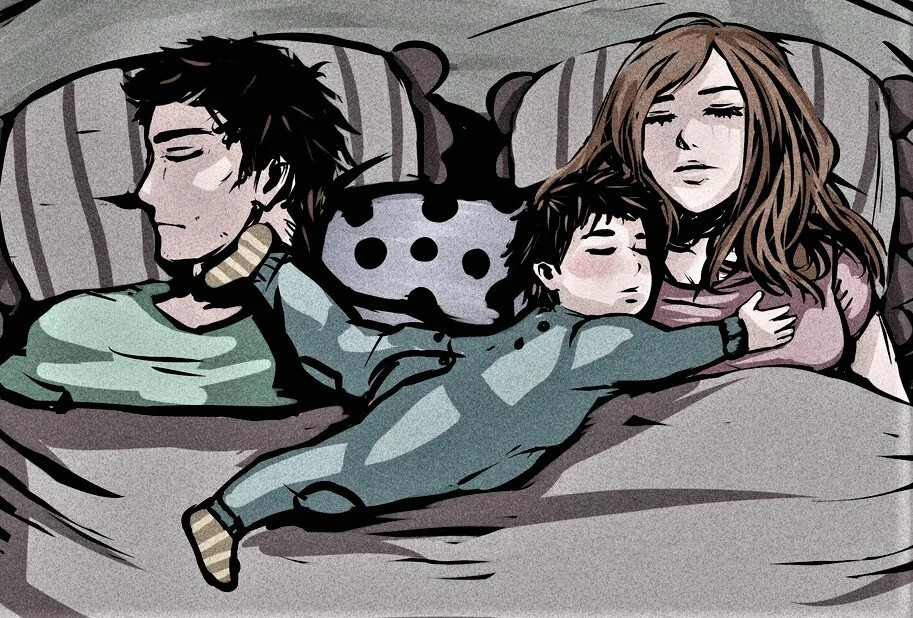 However, one should be aware that modern psychology calls the theories of the Oedipus and Electra complex fundamentally outdated.
However, one should be aware that modern psychology calls the theories of the Oedipus and Electra complex fundamentally outdated.
Many psychologists perceive these theories as irrelevant in the modern world. There are those who regard them as an insult to women. These days, if a girl exhibits such common behaviors as a specific desire for paternal affection, talks about her desire to spend a significant part of her time with her father, or states that she wants to "marry dad", then there is nothing wrong with that. or ashamed.
After all, her father is her closest male role model. Behavioral patterns, games and fantasies will disappear in a completely normal way as socialization among peers becomes more important for the girl.
Photo by Elina Krima: Pexels In fact, Jung himself never gave a biological or psychological assessment of his theory. This is just a form of behavior that occurs in some girls and usually changes over time. There are more difficult cases.














